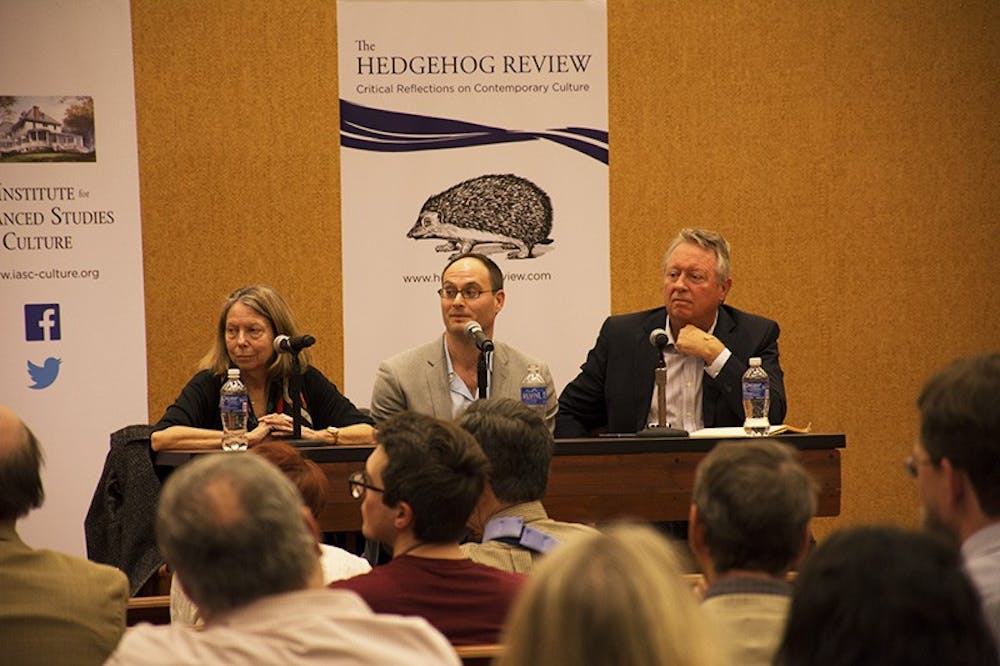The Institute for Advanced Studies in Culture and the Media Studies Department hosted a panel discussion on Thursday on “The Fate of Journalism in the New Media Era.”
The event brought Jill Abramson, former executive editor of The New York Times, and Franklin Foer, the former editor of The New Republic to Grounds.
The panelists have experienced firsthand how technology can drastically change a newsroom, Chad Wellmon, an associate professor of German and faculty fellow at the institute, said.
“Both of them lost their jobs amidst big debates about the effects of digital media on journalism and the future of journalism,” Wellmon said. “Their critics at least saw them as not leading The Times or The New Republic in the direction that best accorded with the demands of the digital age.”
A major point of the panel discussion was the gradually blurring line between the literary and business sides of a news publication. Editors have also become in charge of finances and revenue in recent years, Abramson said.
“The tradition I had always worked in is that there would be a firm separation between the news side and business side,” she said. “My job turned from my love — working with reporters, working on stories — into much more of a pressured search for new products and commercial vehicles.”
Another topic was the integrity of journalism in an age of “clickbait” articles designed to increase readership but not necessarily well-crafted editorials and investigations. Foer said there are dangers to quantifying article popularity.
“The dangerous thing is that once, no matter how high-minded you are...once you realize you can engineer an article’s popularity, that becomes the value that you just can't escape,” Foer said.
Discussing how technology has changed journalism and blurred the lines between journalism and media is important to understanding how journalism affects democracy, Media Studies Prof. Hector Amaya said.
“When the economic transformation and the new technologies came about at the beginning of the turn of the millennium...we had mostly a journalism that was based on advertising,” Amaya said.
Wellmon said he hoped the audience got a deeper understanding of how technology changes journalism and media and therefore, how consumers understand the world.
“I hope they get a broader sense...of the cultural and political significance and value of a robust journalistic enterprise and institution,” he said.







